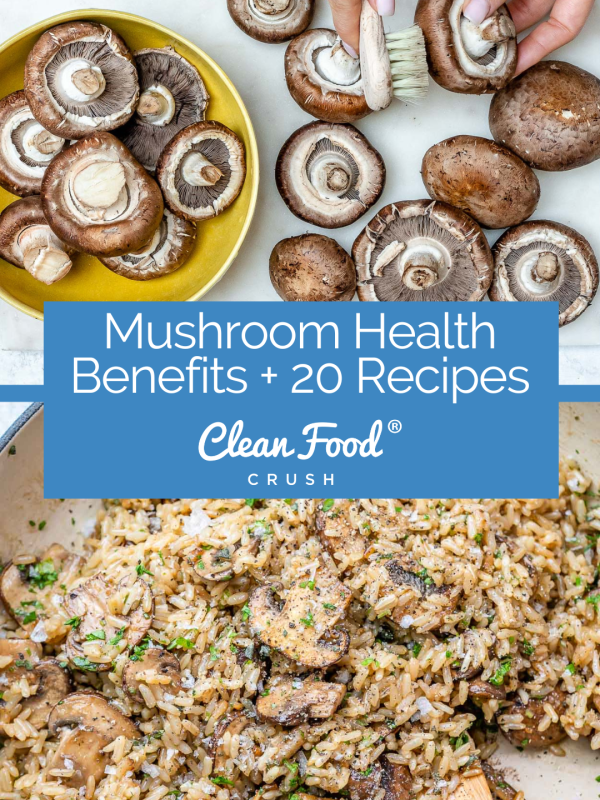This post contains affiliate links. Please see our disclosure policy.
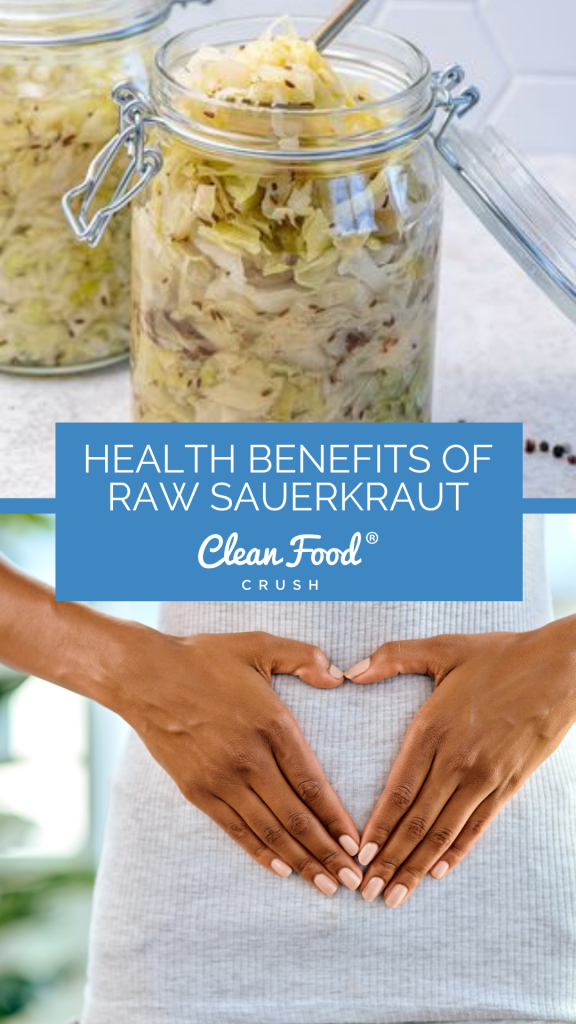
Health Benefits of Raw Sauerkraut
When it comes to health foods, sauerkraut may not be at the top of your list of foods to eat. Yet this fermented vegetable has a lot of health benefits and can make a great addition to any diet. Read on to learn more about what sauerkraut is, why you should consider adding it to your diet, and things to keep in mind when purchasing and using it.
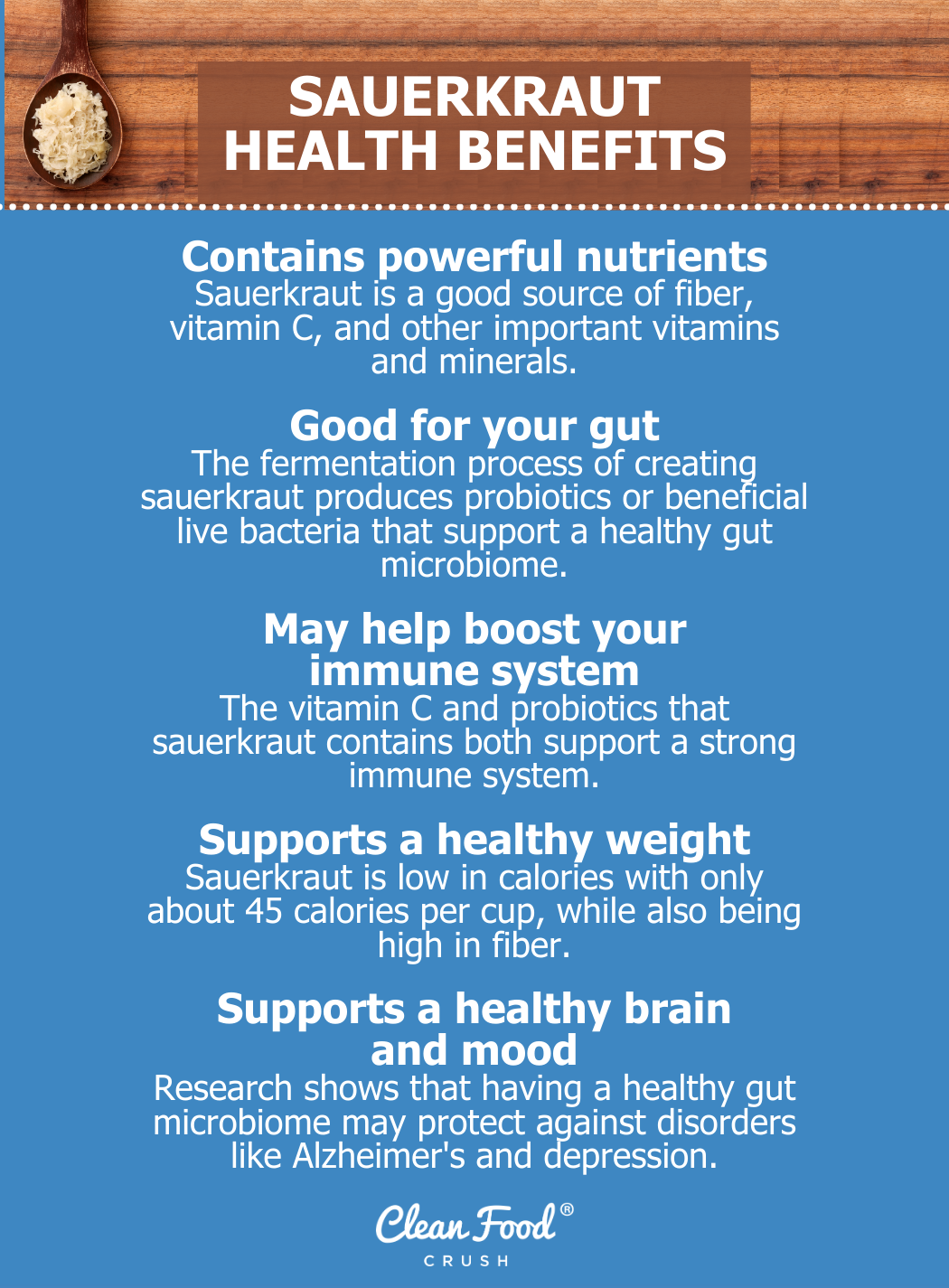
What is sauerkraut and what makes it healthy?
Sauerkraut is a fermented vegetable traditionally made with green cabbage and salt and has a sour, tangy and salty flavor. You can find it in most grocery stores in the refrigerated section, and it may come in different varieties such as beetroot sauerkraut which will be bright reddish purple instead of beige like traditional sauerkraut.
Some of its health benefits include:
- Contains powerful nutrients. Sauerkraut is a good source of fiber, vitamin C, and other important vitamins and minerals. Fermented foods also contain lactic acid and enzymes that help the body utilize nutrients better. One caveat is that it can also be high in sodium, which may need to be limited for certain people such as those with high blood pressure.
- Good for your gut. The fermentation process of creating sauerkraut produces probiotics, or beneficial live bacteria that support a healthy gut microbiome (the balance of good and bad bacteria in your intestines). Research shows that probiotics can help treat digestive ailments such as irritable bowel syndrome, bloating, and inflammatory bowel disorders which include Chrons disease and ulcerative colitis. You can read more about the importance of gut health and probiotics in this post.
- May help boost your immune system. The vitamin C and probiotics that sauerkraut contains both support a strong immune system. Having healthy gut bacteria may help prevent the growth of harmful bacteria and strengthen your body’s natural defense systems. In addition, vitamin C serves as an antioxidant which fights against foreign invaders that can cause illness.
- Supports healthy weight. Sauerkraut is low in calories with only about 45 calories per cup, while also being high in fiber. Both of these things support a healthy weight by helping keep you full and less likely to overeat. Some research shows that the probiotics in sauerkraut may also protect against obesity.
- Supports a healthy brain and mood. Research shows that having a healthy gut microbiome may protect against disorders like Alzheimers and depression.
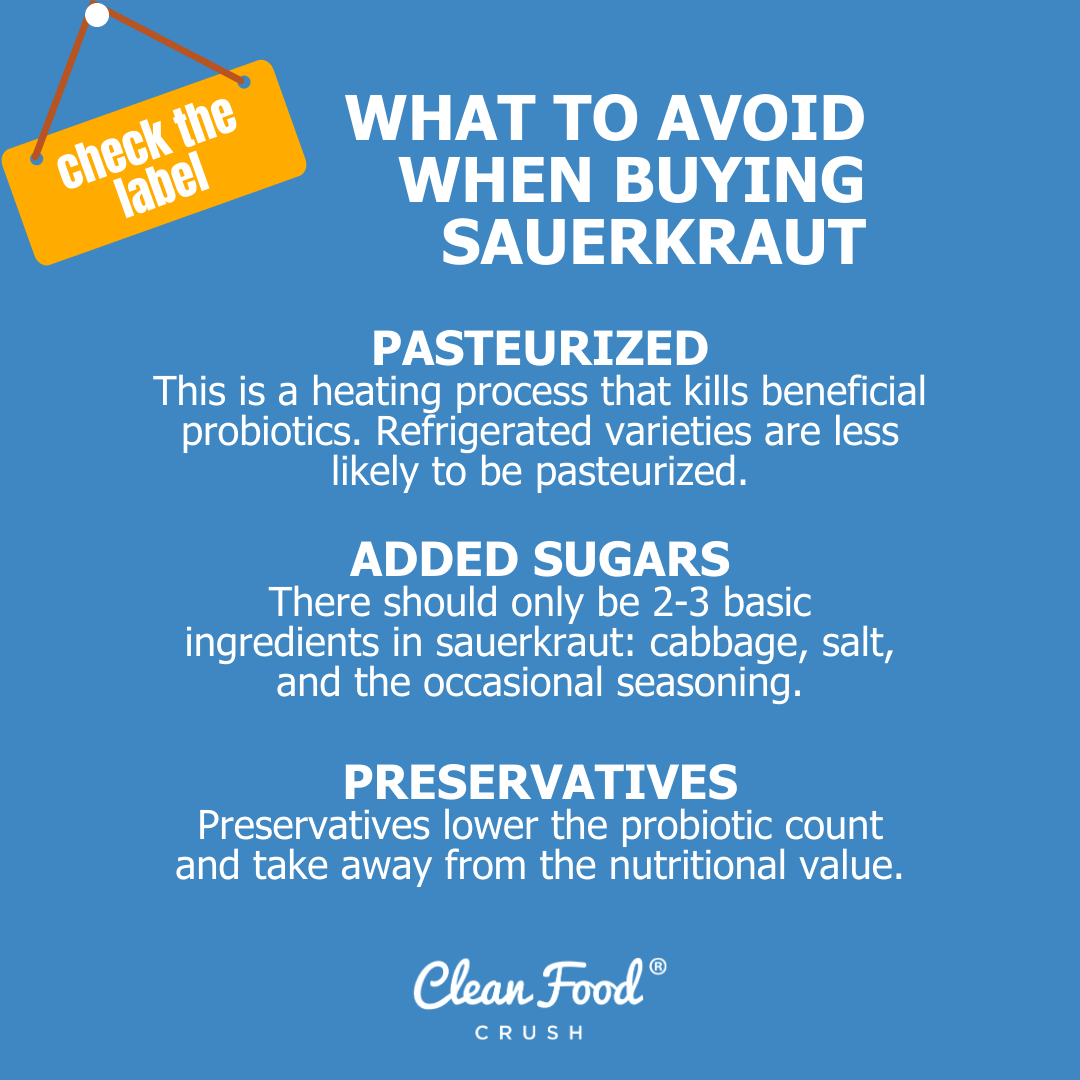
Tips for buying & using sauerkraut
To help make sure you get the most nutritional value out of sauerkraut, keep these tips in mind when purchasing:
- Choose unpasteurized varieties. Shelf-stable sauerkraut is often pasteurized, which is a heating process that kills the beneficial probiotics. Refrigerated varieties are less likely to be pasteurized, but its a good idea to check the label to be sure.
- Watch out for added sugars. There should only be 2-3 basic ingredients in sauerkraut: cabbage, salt, and sometimes other seasonings like garlic or other vegetables like beets or carrots. Avoid any varieties that contain added sugars.
- Avoid preservatives. Some store-bought sauerkraut brands contain preservatives, which may also lower the probiotic count and take away from the nutritional value.
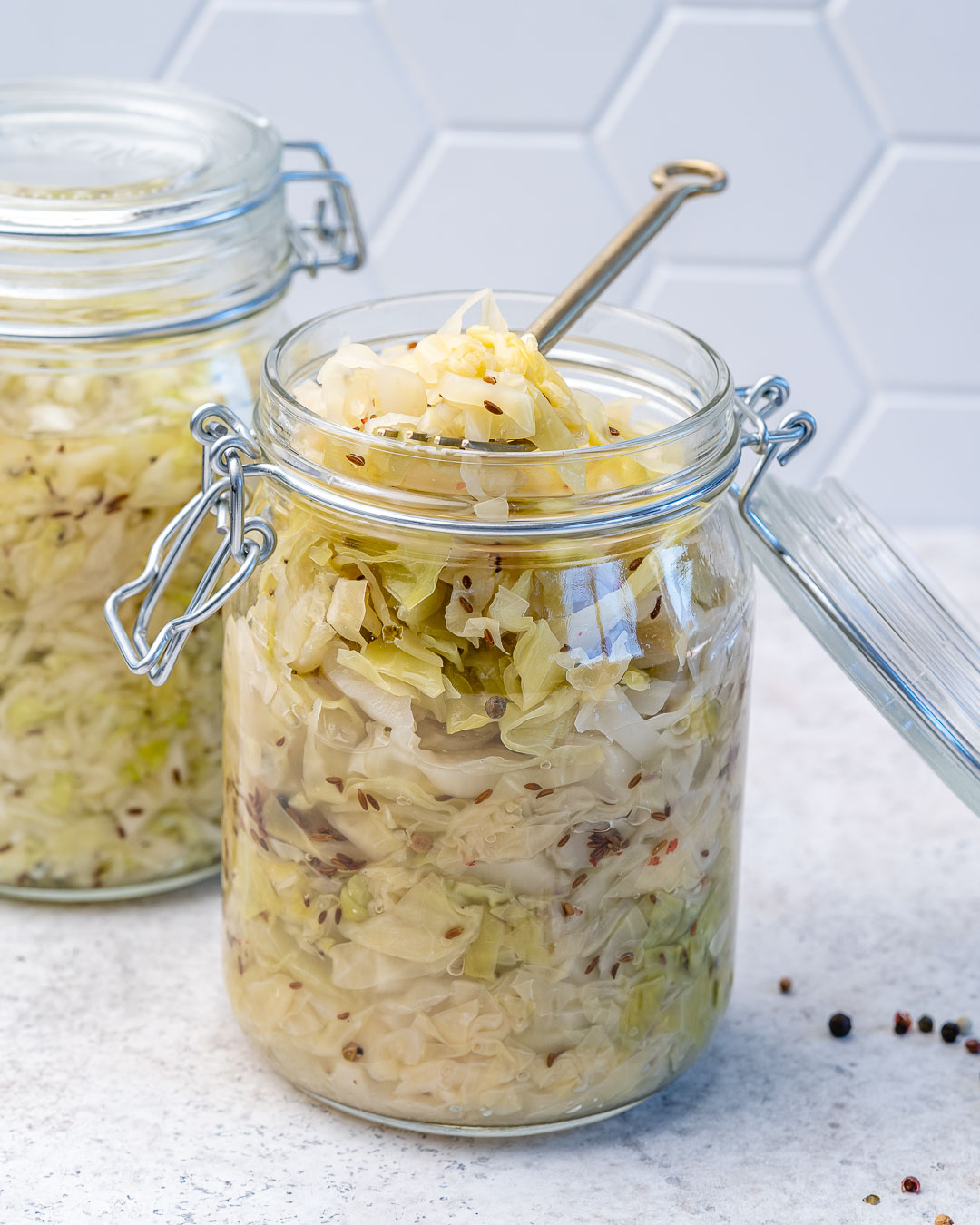
You can also try making your own sauerkraut at home to make sure you get the best health benefits.
If you need ideas for how to use sauerkraut, here are some to consider:
- Add it to eggs
- Mix it in salsa
- Enjoy it on top of avocado toast
- Eat is as a side to any meal
- Use it in a dip such as hummus or blend it with cream cheese as a spread
- Add it to a sandwich or wrap
- Mix it with rice or a stir fry meal
In Summary
Sauerkraut is a highly nutritious fermented vegetable that provides natural probiotics and other important nutrients for your health. It is worth giving it a try if you haven’t done so yet, or continuing to include it in your diet if you’re already familiar with it.










